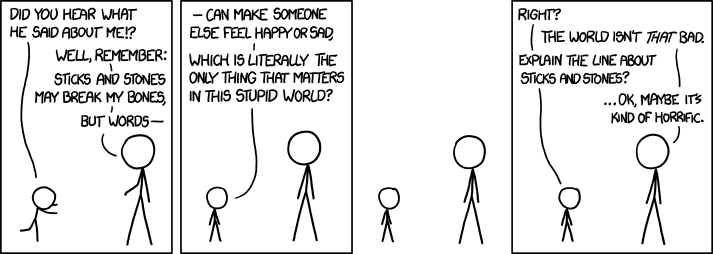Scan-o of the week
Sep. 7th, 2015 09:44 pmA few days ago, I was reading a Fredric Brown novel from the 1950s that had been scanned and OCR-ed. It had the oddest scan-o that I've seen in quite a while. About 15 or 20 times over the course of the novel, the word "him" was misrecognized as the word "God". Grammatically speaking, the two words tend to work in the same places in sentences. It didn't make much SENSE however. The first few times I saw it, I was willing to put it down to Brown's wry and sometimes elliptical sense of humor. But after a while, the pattern became clear.
I miss my dad. I bet if he were still around, he'd be able to identify what the original typeface that was scanned in was, just from that information.
I miss my dad. I bet if he were still around, he'd be able to identify what the original typeface that was scanned in was, just from that information.
